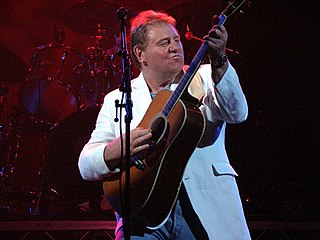A Quote by John Gardner
What art ought to do is tell stories which are moment-by-moment wonderful, which are true to human experience, and which in no way explain human experience.
Related Quotes
I'm interested in such things as the difference between how we perceive the world and what the world turns out to be. The difference is between the stories we tell others and the stories we tell ourselves. There is a wonderful Russian saying, which I use as the epigraph of one of my novels, which goes, He lies like an eyewitness. Which is very sly, clever and true.
Art breaks open a dimension inaccessible to other experience, a dimension in which human beings, nature, and things no longer stand under the law of the established reality principle...The encounter with the truth of art happens in the estranging language and images which make perceptible, visible, and audible that which is no longer, or not yet, perceived, said, and heard in everyday life.
The desire for story is very, very deep in human beings. We are the only creature in the world that does this; we are the only creature that tells stories, and sometimes those are true stories and sometimes those are made up stories. Then there are the larger stories, the grand narratives that we live in, which are things like nation and family and clan and so on. Those stories are considered to be treated reverentially. They need to be part of the way in which we conduct the discourse of our lives and to prevent people from doing something very damaging to human nature.
We are on the earth, and they tell us of heaven; we are human beings, and they tell us of angels and devils; we are matter, and they tell us of spirit; we have five senses whereby to admit truths, and a reasoning faculty by which to build our belief upon them; and they tell us of dreams dreamed thousands of years ago, which our experience flatly contradicts.
The hypotheses which we accept ought to explain phenomena which we have observed. But they ought to do more than this; our hypotheses ought to foretell phenomena which have not yet been observed; ... because if the rule prevails, it includes all cases; and will determine them all, if we can only calculate its real consequences. Hence it will predict the results of new combinations, as well as explain the appearances which have occurred in old ones. And that it does this with certainty and correctness, is one mode in which the hypothesis is to be verified as right and useful.
It is already becoming clear that a chapter which had a Western beginning will have to have an Indian ending if it is not to end in self-destruction of the human race. At this supremely dangerous moment in human history , the only way of salvation is the ancient Hindu way. Here we have the attitude and spirit that can make it possible for the human race to grow together in to a single family.
All human life-from the moment of conception and through all subsequent stages-is sacred, because human life is created in the image and likeness of God. Nothing surpasses the greatness or dignity of a human person...If a person's right to life is violated at the moment in which he is first conceived in his mother's womb, an indirect blow is struck also at the whole moral order.
The experience I'm talking about has given me one certainty: the salvation of this human world lies nowhere else than in the human heart, in the human power to reflect, in human meekness and in human responsibility. Without a global revolution in human consciousness, nothing will change for the better, and the catastrophe toward which this world is headed will be unavoidable.







































